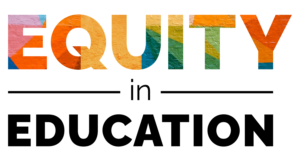
What does equity look like for children in Atlanta?
EiE developed four policy priorities based on local stakeholder interviews and research of national best practices.
All told, we believe these four planks constitute a roadmap to equity for all children in Atlanta.
[1]
Equitable Access to Wraparound Services
Challenge: Atlanta’s children enter the classroom on an unequal playing field. Some arrive with a full belly, clean clothes, and a vocabulary far beyond their grade level. Others come with the weight of unprocessed trauma, the uncertainty of temporary housing, and the threat of being labeled as a criminal-in-waiting.
Recommendation: Atlanta Public Schools should begin mandatory confidential wraparound service screening that connects to a support system that provides students and families with services and is nimble enough to address needs over the course of the child’s time in the District.
[2]
Flexibility to Optimize the Education Experience
Challenge 1: School leaders are provided some leeway but do not receive training on how to use their budgets to create a learning environment that best meets the needs of their students. This gap leaves school staff frustrated and unable to adequately address learning challenges.
Recommendation 1: Atlanta Public Schools must train school leaders to best leverage their resources and budgets to meet the needs of every student. This support empowers school staff to budget according to students’ interests and parent and faculty feedback.
Challenge 2: District-mandated learning and staffing protocols often lead to students being taught to the test rather than subject mastery. This shallow focus does not support deep learning.
Recommendation 2: State and federal testing requirements aside, Atlanta Public Schools must provide teachers and schools the autonomy to evaluate students’ content mastery through project-based performance tasks or teacher-designed assessments.
Challenge 3: High-performing students attending low-achieving schools are more likely to take classes below their achievement level, placing them in learning environments that do not adequately challenge them. This is a clear example of system inequity.
Recommendation 3: The District must adopt a citywide International Baccalaureate and Advanced Placement virtual classroom available to all students, prioritizing enrollment of high-performing students in low-achieving schools. Inequitable access to rigorous courses stunts high-performing students’ academic growth and college readiness.
[3]
Integrate Schools Within APS
Challenge: Due to wealth inequities, a politicization of school types, and a restricted pathway to creating community-based innovative school options, families in Atlanta are forced to choose between public schools that are segregated and resource-polarized. And families, particularly poor ones, have not been given an equitable seat at the table to make decisions on what kinds of schools would best meet the needs of their children in their own communities.
Recommendation: The Atlanta Public Schools Superintendent and Board of Education must create an integrated ecosystem of schools that:
-
Analyzes access and innovation gaps in each school cluster;
-
Develops a strategic plan for specific academic and wellness goals for each school cluster;
-
Utilizes a pathway for locally-approved school options, including traditional, partnership, charter, magnet, and virtual schools, and;
-
Integrates schools into strong feeder patterns within clusters that provide viable, stellar school options for every learner in every neighborhood.
[4]
Reimagine Student Disciplinary Methods and Actions
Challenge: As shown in the data below, clear inequities exist along racial and economic lines when determining how to address inappropriate behavior and identifying alternative actions to student discipline. Black children, especially boys, are overwhelmingly impacted by disciplinary policies.
Recommendation: Atlanta Public Schools must ban out-of-school suspensions and expulsions for all K-2 students, with exceptions for criminal behavior. The District must also review the existing infractions and disciplinary actions across each cluster to determine inconsistencies and racial- and gender-based inequities in discipline policies and practices.

